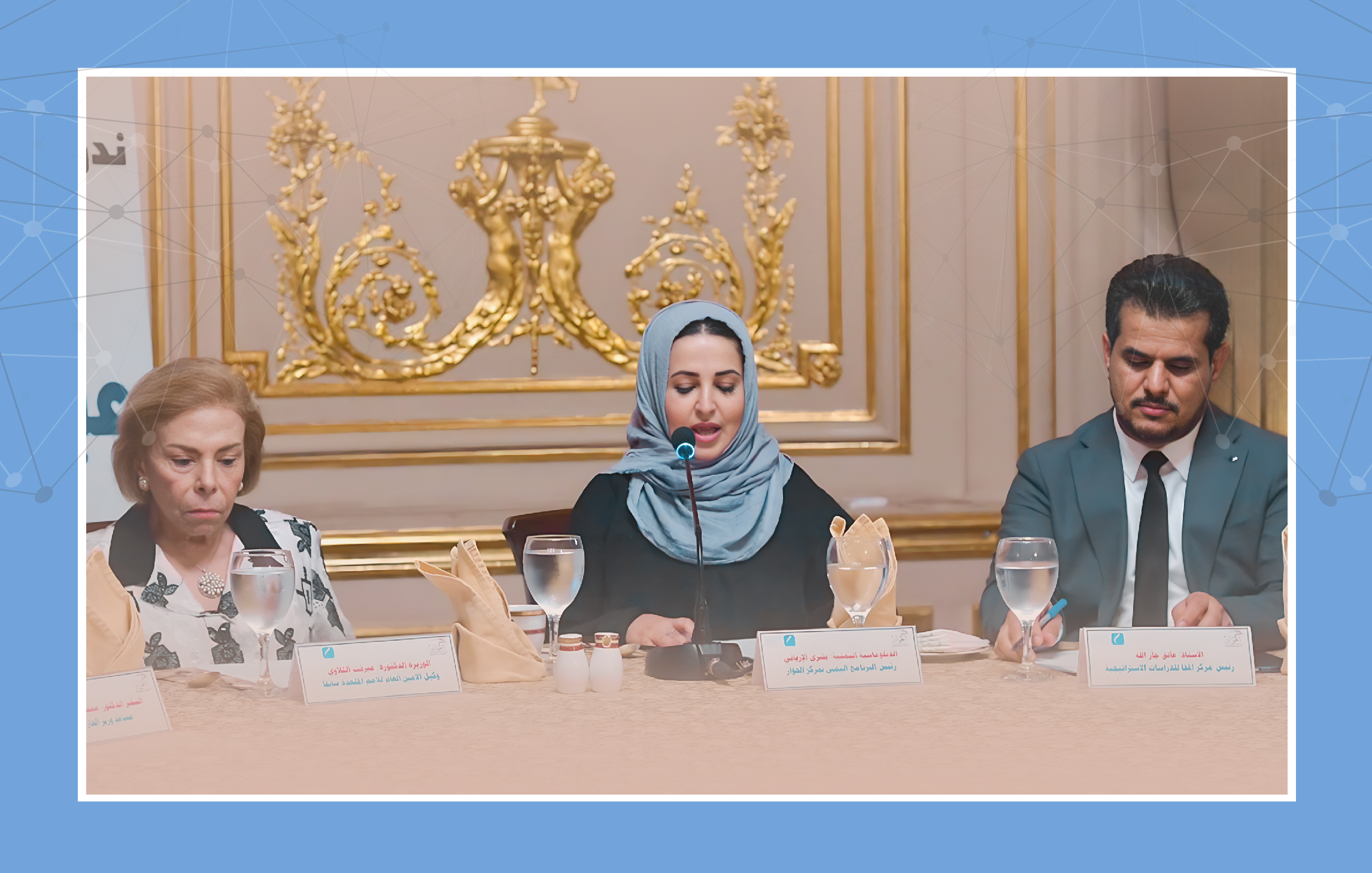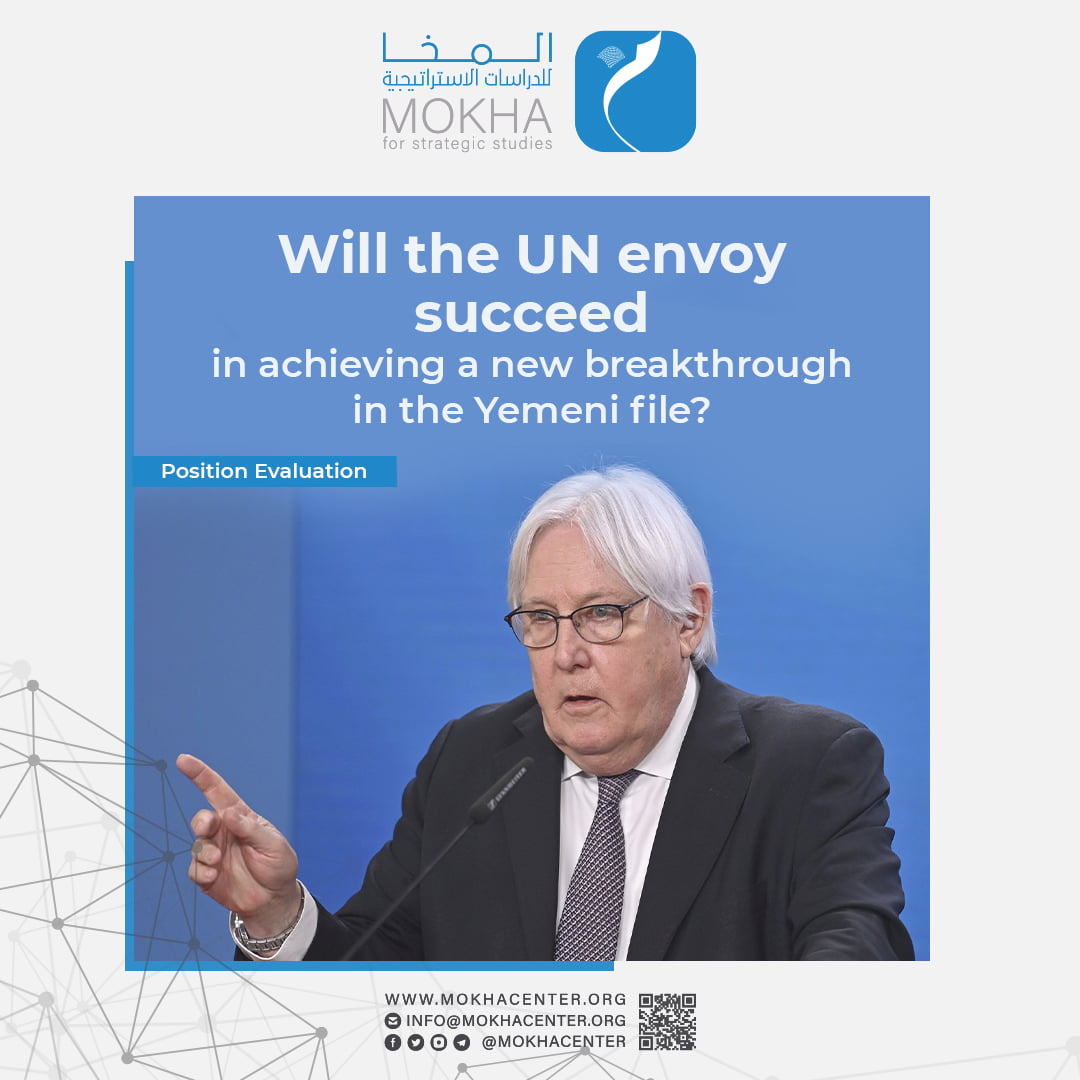Exploring the Context and Motivation Behind Al-Alimi’s

| Getting your Trinity Audio player ready... |
Introduction
In late April 2024, Yemen President Rashad Al-Alimi, who is also the chairman of Yemen’s newly formed Presidential Leadership Council (PLC), visited Ma’rib Governorate for the first time since the council was established in April 2022. He was accompanied by council members, Abdullah Al-Alimi and Othman Mujali, making this trip a significant moment for the PLC. This paper delves into the potential reasons behind the visit, its broader implications and the possible future it signals.
The visit occurred during a time of precarious uncertainty. Regional and international developments loomed over Yemen, threatening to plunge the country back into war after a fragile period of relative calm. Amid this tense atmosphere, President Al-Alimi held a series of meetings with local authorities, executive bodies and community leaders in Ma’rib. He also met with National Army leadership, witnessed a military parade and visited some active battlefronts. These actions seemed to send a clear message from Ma’rib: to highlight the strength of the National Army and the steadfast support it receives from the local population.
Amid regional developments that undermined Yemen’s peace efforts, including the collapse of the Saudi-negotiated peace plan with the Houthi group, Al-Alimi’s visit to Ma’rib became particularly significant. The peace agreement, which was expected to be finalized by the end of last year, fell apart following Israeli aggression against the Gaza Strip. Meanwhile, the Houthis ramped up their attacks on international shipping routes in the Red Sea and the Gulf of Aden.
These actions led the United States to change its stance on the Yemen conflict, resulting in the formation of a naval military coalition called “Guardian of Prosperity” to counter the Houthi threats. As the attacks continued, Western nations began to see the Houthis as more than just a local faction fighting for power in Yemen. They recognized the Houthis as a significant threat to global interests and acknowledged their strong ties with Iran’s regional policies and agendas.
Context and timing
Amid regional tensions that hindered Yemen’s peace efforts, including the collapse of the Saudi-negotiated peace plan with the Houthi group, Al-Alimi’s Ma’rib visit became particularly significant. The peace agreement, which should have been finalized by the end of last year, fell apart after Israel’s aggression against the Gaza Strip. So, the Houthis escalated their attacks on international shipping routes in the Gulf of Aden and Red Sea. All that prompted the United States to alter its position on the Yemen conflict and formed a naval military coalition called “Guardian of Prosperity” to deal the Houthi threats. As the attacks continued, Western nations started to view the Houthis as more than just a local faction fighting for power within Yemen; they recognized the group as a significant threat to global interests, acknowledging the connections between the Houthis and Iran’s regional policies and agendas.
As the repercussions of Houthi attacks on international shipping and economic interests continued to increase, the United States and Britain found themselves compelled to act. This included launching attacks on targets within Houthi-controlled areas and designating them as a terrorist group. The two countries also pressured Saudi Arabia to prevent the signing of the peace map and supported the UN Security Council’s affirmation of Resolution No. 2216/2015, legitimizes the war in Yemen, classifies the Houthis as a coup group, and demonstrates relative support for the legitimate authority.
Through the National Democratic Institute for International Affairs, the United States sponsored a dialogue in Aden between various components and parties affiliated with the Presidential Leadership Council. This dialogue spanned two days and resulted in the announcement of preparations for forming a broad national political bloc.1
It is likely that the United States aims to bolster the cohesion of the legitimate authority’s military forces. In this regard, the president’s visit to Ma’rib, even if undertaken without explicit instructions from the Americans, was met with their approval.
The chairman’s visit coincided with notable advancements in areas under the legitimate authority’s control. Tensions between the Transitional Council and the legitimate authority saw a relative reduction, fostering increased stability within the temporary capital of Aden and closer ties between the government and various governorates. Al-Alimi’s prior visits to Hadhramaut Governorate on June 24, 2023, and subsequently to Al-Mahrah Governorate weeks later, underscored this trend. On October 22, 2023, he shifted his focus to assessing the damage caused by floods in Al-Mahrah Governorate.
At the same time, there were government-led efforts to activate financial and economic reforms. Prime Minister Ahmed Awad bin Mubarak adopted a vision to combat corruption, streamline tax policies, enhance oversight of revenue collection and revitalize state institutions. However, concerns have been raised regarding the potential motives behind Al-Alimi’s visit to Ma’rib. Some speculate that it aims to exert pressure on local authorities to increase oil derivative prices, which sparked tensions when introduced on December 30, 2023. This led to swift opposition from certain social groups in the governorate, leading to the formation of tribal councils in protest. Later, local authorities were compelled to postpone the implementation following mediation efforts. Furthermore, there are apprehensions that the visit seeks to compel the allocation of financial resources to the Central Bank in Aden, raising concerns that these funds may be redirected to other priorities, potentially to the detriment of the national army and frontline fighters.
Goals and motivations
Through analysis of the context and the speeches of the Presidential Leadership Council’s chairman, it can be said that the visit was motivated by several motives and sought to achieve the following goals:
- Demonstrating the unity of the legitimate authority:
The visit likely aimed to showcase the unity of the legitimate authority, the cohesion among its components and its widespread presence across the governed territories. It served to underscore the connection between the political and military leadership, particularly given that a significant portion of the National Army’s leadership is situated in Ma’rib. Not to mention, Ma’rib hosts the largest populace aligned with the authority, comprising tribes from the governorate and millions of internally displaced individuals who fled Houthi oppression or sought to join the resistance against them. This collective has been engaged in intense battles against the Houthis for over eight years, prioritizing the thwarting of their coup attempts.
- Boosting morale and readiness:
One of the main motivations for Al-Alimi’s visit to Ma’rib was to boost the morale of the military and local population, raise their readiness and show appreciation for their efforts. The chairman of the Presidential Command Council aimed to deliver strong messages of support and motivation to the military, popular components, security services and local authorities. He described Ma’rib Governorate as “the safety valve of the Republic and the gateway to victory for the restoration of state institutions and the areas still under Houthi control.”
Al-Alimi praised the high discipline and combat readiness of the armed and security forces, as well as the heroism of the army and popular resistance fighters over the past years. He expressed pride in every soldier, officer and resistance fighter, highlighting their dedication at all combat sites. He emphasized that “this force, which has fought a holy battle for the republic and the state over the past years, is the safety valve of the nation, and its sacrifices will lead to a decisive victory.” Al-Alimi declared, “Ma’rib, with everyone in it, is hope today, just as it was in the beginning when it rejected and resisted the Imamate project supported by the Iranian regime.”2
The visit allowed the chairman of the leadership council to assess the military readiness on various fronts in the governorate. It also gave him the chance to send a strong message to the Houthis, emphasizing that the National Army is well-prepared should the Houthis abandon the peace path or use propaganda to promote their attacks. In the southern Red Sea, the country has once again been drawn into war and major military confrontations.
To boost readiness and morale, Al-Alimi declared, “We will start from here, and from all governorates, to liberate the areas still under the control of the terrorist Houthi militia supported by the Iranian regime. Victory will be achieved through the armed forces in all their formations and the popular resistance supporting them.”3
Recognizing their effective role in recent years, the chairman of the PLC awarded the Training and Qualification Authority of the Ministry of Defense a certificate of appreciation for their efforts in enhancing the capabilities of the armed forces. Similarly, he awarded the Special Security Forces in Ma’rib Governorate a certificate of appreciation for their outstanding efforts in maintaining security and stability, combating terrorism, and thwarting Houthi attempts to destabilize the governorate’s security, public tranquility and social peace.4
- Planning for future scenarios:
It’s clear that the primary goal of Al-Alimi’s visit was to prepare for the upcoming stage, which involves a choice between pursuing political settlement or military action. Given the Houthis’ recent attacks in the Red Sea and their rising influence in the Arab world, the focus is leaning toward military action. Western countries are increasingly aware that the Houthis pose a threat to their interests in the region and globally. Whether the situation moves toward peace negotiations or escalates into war, the Presidential Command Council needs to organize its military capabilities to strengthen its negotiating position or achieve military gains.
Despite limited progress in merging various military formations with the National Army, the main reliance remains on the National Army in Ma’rib. Ma’rib is the stronghold of the National Army and has a supportive population base that opposes the Houthis. Al-Alimi highlighted that the Houthi militia “has proven that it is not a serious partner for peace, but rather uses peace talks as a form of deception and preparation for new wars. This necessitates working with all effort and readiness to impose the desired peace.”5
In a clear message, the PLC chairman stated, “We must work on several tracks and adopt the motto, ‘A hand builds, a hand fights to make peace.’”6
What was the agenda for the visit?
The visit sparked widespread reactions across various sectors, including popular, political and military spheres. It garnered satisfaction from a considerable portion of the citizenry, who interpreted it as a positive signal of the legitimate authority’s status. This sentiment stemmed from Ma’rib’s significant influence at military, popular and symbolic levels. Moreover, the delay in Al-Alimi’s visit, two years after the formation of the Presidential Command Council, had left the impression that the National Army was operating without adequate political support. The visit pushed the local authority to advance development initiatives within the governorate and boosted morale among the army and security forces. It also served as a platform to address the army’s challenges and concerns. It is likely that various decisions impacting the army’s situation, particularly regarding salaries, armament and training, were discussed during his visit, with expectations for at least some of them to be addressed.
The impact of this visit will be assessed in the medium term, depending on the course of developments in Yemen. Should tensions escalate into military conflict with the Houthi group, the visit’s positive effects are expected to be more pronounced. In such a scenario, political leadership, including the Arab coalition countries, would likely extend greater support to the national army. If the peace map is signed, the effects may be diminished.
For members of the Presidential Leadership Council, the visit provided an opportunity to witness the significant development that is underway in Ma’rib Governorate, the disciplined state of the National Army and security forces, and the unified voice expressed by Ma’rib’s notable figures during meetings with the president and council members. This demonstrated Ma’rib’s cohesion and the widespread support among its populace, army and security units for the president and council members, as well as for other institutions of the legitimate authority.
However, the visit also provoked the Houthi group, leading to escalated rhetoric in the media regarding the oil and gas wells in Safer. The extent and motives behind this escalation remain uncertain: Is it merely a form of blackmail, or could it potentially translate into a reckless act targeting the country’s remaining resources and sovereign capabilities?
Resources
https://alislah-ye.net/news_details.php?sid=11123
The Chairman of the Leadership Council chairs a meeting of the leaders of the local authority and its executive bodies in Ma’rib Governorate, Yemeni News Agency Saba (affiliated with the legitimate government), on: 4/5/2024, available at the following link:
https://www.sabanew.net/story/ar /110141 Same source as above.
The Chairman of the Command Council reviews the level of readiness on some Ma’rib fronts, Yemeni News Agency Saba (affiliated with the legitimate government), on: 4/5/2024, available at the following link:
https://www.sabanew.net/story/ar/110197
The Chairman of the Leadership Council chairs a meeting of army leaders and praises the high combat readiness, Yemeni News Agency Saba (affiliated with the legitimate government), on: 5/4/2024, available at the following link:
https://www.sabanew.net/story/ar/110167
The head of the Leadership Council chairs a meeting of the leaders of the local authority and its executive bodies in Ma’rib Governorate




